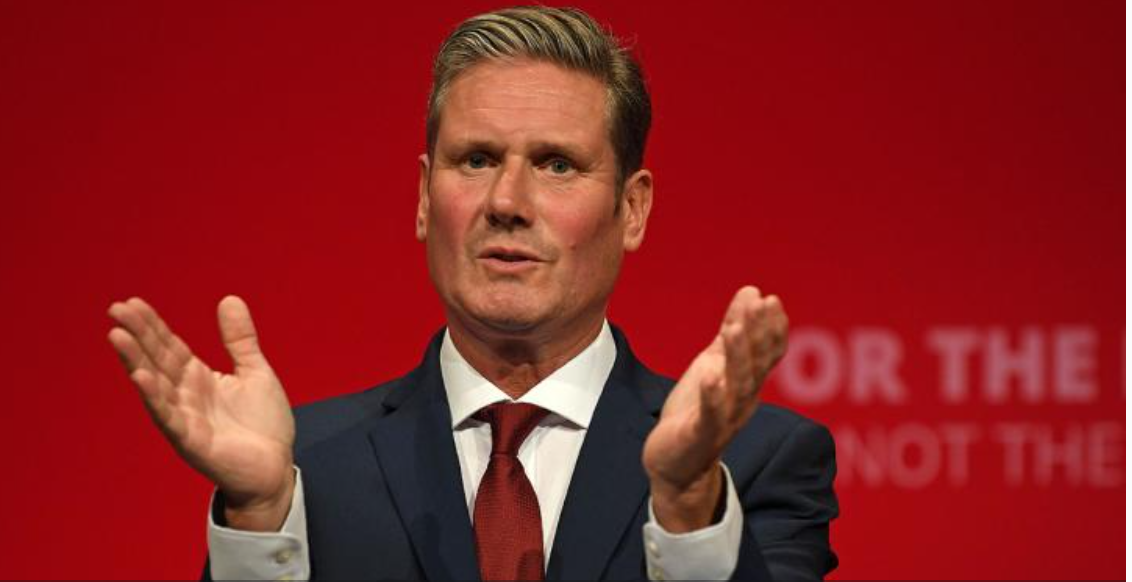This article first appeared at betting.betfair.com on 28th September 2022
Over the past couple of years, I’ve frequently described Sir Keir Starmer as the luckiest party leader of my lifetime. That stands. Never before has a government made so many self-enforced errors. Let alone doubled and tripled down on those errors. Merely by standing straight and landing easy hits on the Tories, Labour find themselves in their best polling position since 2001.
Following a generally well-received speech at the Labour Party Conference, it increasingly looks as if he has played a strategic blinder and is headed for Number 10. Check out these stunning polls – for which the fieldwork was taken before the conference. The sterling crisis and calamitous government management of it may well produce even bigger leads in the days ahead.
Opposition strategy is notoriously difficult. It is hard to get your message out, as the media focus on the government. Your mistakes are amplified. Produce a popular policy, and the government will likely steal it or water it down. Different party leaders have tried different approaches, but only one opposition leader made it into government this century – David Cameron.
Starmer is following the Cameron textbook
I suspect by design, Team Starmer has followed the same approach. After he became leader in 2005, Cameron ditched all Tory policies, claiming they were ‘under review’. His obsession was ‘detoxifying the brand‘, backed with a stack of evidence that the Tories were seen as extreme, only interested in helping the rich, banging on about Europe all the time.
Instead his early years were characterised by photo-ops and soundbites. A trip to the Arctic to stress his green credentials. Cycling to work (with his chauffeur in tow). Some flashy performances at PMQs. It didn’t transform the polls and he was often branded as shallow, unserious, without policies.
Starmer’s early years have been all about demonstrating he isn’t Jeremy Corbyn. Appearing in front of a union jack, much to the dismay of Corbynites. He has picked fight after fight – in many cases unfairly – with the Left and party members. Policies were non-existent. Boris Johnson temporarily scored a hit by labelling him ‘Captain Hindsight‘.
Tory disasters have opened the door
But, as with Cameron, it now looks like a smart waiting game. For what the Tory leader was waiting for, was a chance to legitimately hammer the government. When that opportunity arose, the rebrand would enable him to appear like a plausible, moderate alternative.
So when the global financial crash derailed Labour in 2008/09, Cameron and George Osborne restored all the old Tory tunes. ‘Labour mismanagement’, ‘bankrupting the country’, recalling the IMF crisis that derailed the 1970s Labour government.
The earlier detoxification work now allowed the Tories to get a hearing from the country. At the previous election, Labour successfully branded them the ‘same old Tories’, planning huge cuts to public services. Their old lines still worked. But now, Cameron could effectively do the same but under the cover of ‘cuts are unavoidable because Labour have run out of money’.
They didn’t even need put any details. The manifesto promised £6BN in back office cuts. Cameron promised on the Andrew Marr Show there would be no cuts to frontline services. Within a month in office, they’d produced a budget with over £80BN in cuts, including frontline services. None of these manoeuvres cut through or damaged them in the years ahead.
Rebrand offers Starmer a hearing
Whether Starmer has any such opportunism planned for the next election, he’s earned that hearing. The government has lurched from one disaster to another, and one discredited leader to another. The country and the markets are suddenly crying out for a competent alternative.
After years of staying away, the corporate donors are back at this year’s Labour conference. Again, that infuriates the Left of the party, but this is a fight Starmer is happy to have and it doesn’t appear to hurt his brand or electability.
In that sense, he’s following in the footsteps of the previously successful opposition leader, Tony Blair. The parallels with the 1990s, Black Wednesday and Tory implosion, are obvious. I actually think this economic crisis is worse, as explained recently in the Politics Live Blog. Starmer isn’t in quite the dominant polling position Blair was, but he’s getting there.
Click here to read the full article, free of charge, at betting.betfair.com
